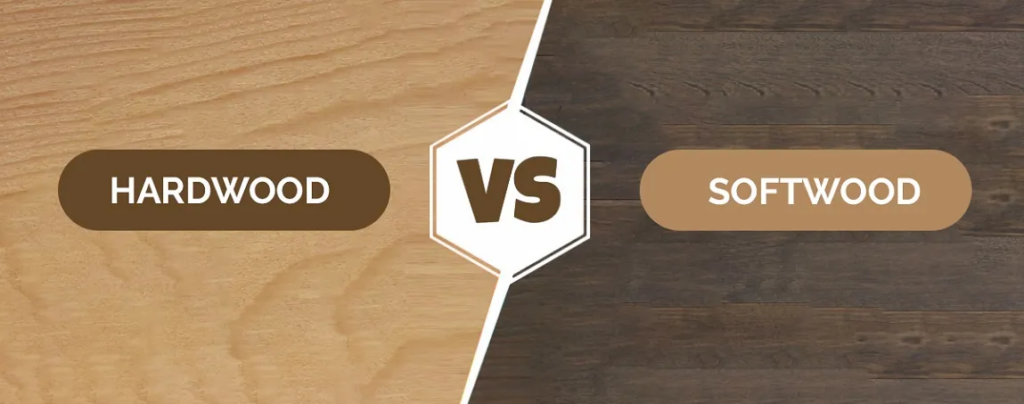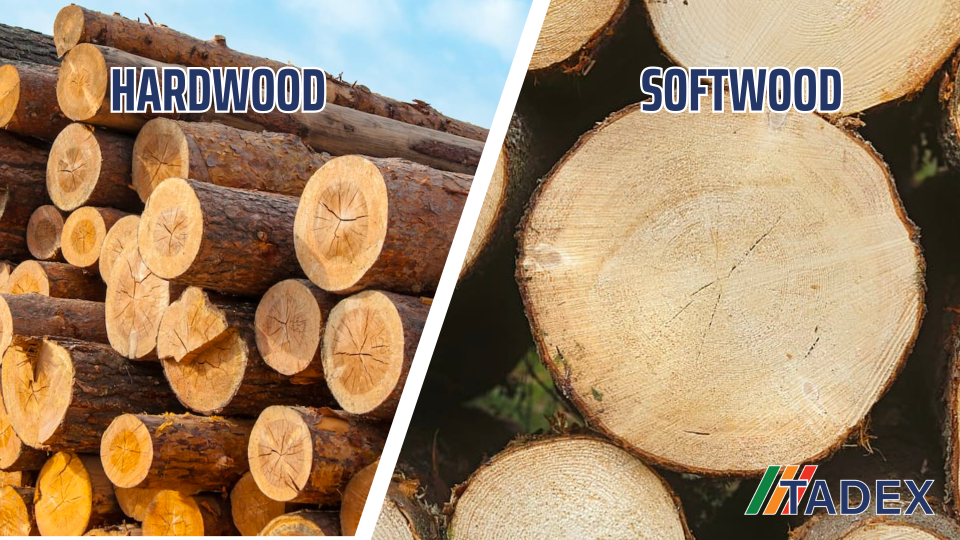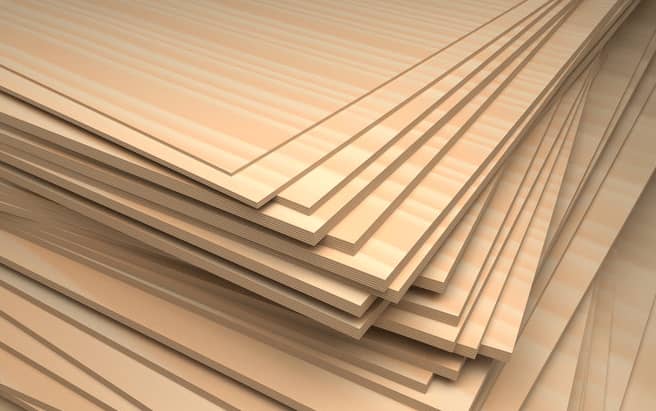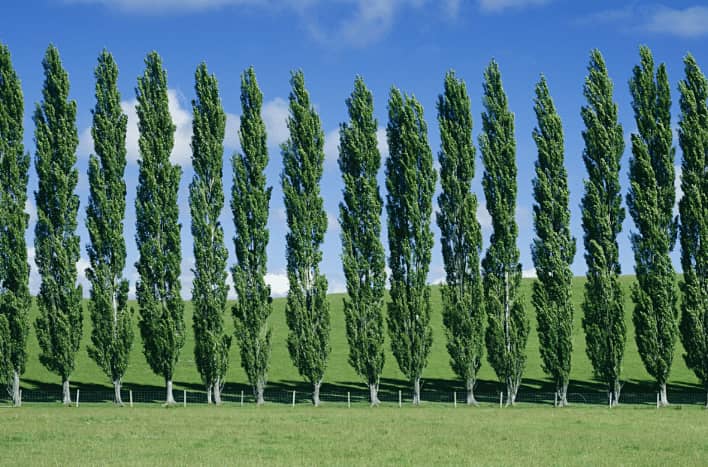Overview: Navigating the World of Plywood
Plywood, a versatile engineered wood product, stands as a cornerstone in countless construction, furniture, and design projects. Its strength, versatility, and affordability have made it a go-to material for both professionals and DIY enthusiasts. However, the world of plywood extends beyond a single, uniform product. It encompasses a diverse range of options, each tailored to specific applications and budget considerations. At the heart of this diversity lies a fundamental distinction: Hardwood Plywood vs. Softwood Plywood.
This comprehensive guide delves into the intricacies of these two plywood titans, providing you with the knowledge to make informed decisions for your next project. We’ll explore their unique characteristics, manufacturing processes, advantages, limitations, and ideal applications. By the end of this exploration, you’ll be equipped to confidently choose the perfect plywood to bring your vision to life, whether you’re a seasoned builder, a passionate woodworker, or a homeowner embarking on a DIY adventure.
Detailed Introduction: Demystifying Hardwood and Softwood Plywood

What is Hardwood Plywood?
Hardwood plywood, as its name suggests, is crafted from layers of hardwood veneers. These veneers are meticulously sliced from hardwood lumber, such as birch, maple, oak, or mahogany, renowned for their strength, durability, and aesthetic appeal. The veneers are then layered with alternating grain directions and bonded together using strong adhesives, typically under high pressure and heat. This cross-graining technique enhances the plywood’s strength, stability, and resistance to warping or twisting, making it ideal for applications where structural integrity and longevity are paramount.
The manufacturing process of hardwood plywood involves several steps, beginning with the selection of high-quality hardwood logs. The logs are then softened through steaming or soaking, allowing for the peeling of thin, continuous sheets of veneer. These veneers are carefully inspected, graded based on their quality, and then dried to a specific moisture content. The dried veneers are then layered with alternating grain directions, glued together with strong adhesives, and pressed under high pressure and heat to create the final plywood sheet.
What is Softwood Plywood?
Softwood plywood, in contrast, is manufactured using veneers derived from softwood trees, such as pine, fir, or cedar. While generally less dense and hard compared to hardwoods, softwoods offer their own set of advantages, including lighter weight, affordability, and excellent workability. Softwood plywood is commonly used in applications where strength requirements are less demanding or where cost-effectiveness is a primary consideration, such as sheathing, subfloors, or packaging materials.
The manufacturing process of softwood plywood is similar to that of hardwood plywood, involving the peeling, drying, layering, gluing, and pressing of veneers. However, due to the softer nature of softwood lumber, the veneers may be thicker and the overall manufacturing process may be less intricate.

Understanding the Properties: A Closer Look at Hardwood and Softwood Plywood
Table 1: Key Properties of Hardwood and Softwood Plywood
| Property | Hardwood Plywood | Softwood Plywood |
|---|---|---|
| Strength and Hardness | Typically stronger and harder, capable of withstanding heavy loads and impacts. Suitable for structural applications, furniture, and high-traffic areas. | Generally less strong and hard, suitable for applications with moderate load-bearing requirements, such as sheathing, subfloors, and packaging. |
| Durability | Highly durable, resistant to dents, scratches, and wear-and-tear. Maintains its integrity over time, even in demanding environments. | Moderately durable, may be more susceptible to dents and scratches compared to hardwood plywood. Suitable for applications where wear and tear are less of a concern. |
| Weight | Denser and heavier, providing stability and sound insulation. Ideal for applications where weight is not a limiting factor. | Lighter weight, making it easier to handle and transport. Suitable for projects where weight considerations are important, such as roofing or overhead applications. |
| Appearance | Offers a range of attractive grain patterns and colors, suitable for furniture and decorative applications. Can be stained or finished to enhance its natural beauty. | Grain patterns may be less pronounced, but can be stained or painted to achieve desired aesthetics. Often used in applications where it will be covered with other materials. |
| Cost | Generally more expensive due to the use of higher-quality hardwoods. The cost can vary depending on the specific hardwood species used. | More affordable, making it a cost-effective option for various projects. The cost can vary depending on the specific softwood species and the grade of the plywood. |
| Workability | Can be more challenging to work with due to its hardness. Requires sharp tools and careful handling to achieve clean cuts and avoid chipping. | Generally easier to work with due to its softer nature. Can be cut, shaped, and fastened with standard woodworking tools. |
| Moisture Resistance | Varies depending on the specific hardwood species used. Some hardwoods, such as teak, are naturally moisture-resistant. | Varies depending on the specific softwood species used. Some softwoods, such as cedar, are naturally moisture-resistant. |
Applications: Where Hardwood and Softwood Plywood Shine
Table 2: Common Applications of Hardwood and Softwood Plywood
| Application | Hardwood Plywood | Softwood Plywood |
|---|---|---|
| Furniture | * Target Users: Furniture makers, designers, woodworkers. * Main Applications: High-end furniture, cabinets, tables, chairs, shelving units, where strength, durability, and aesthetics are paramount. * Advantages: Offers exceptional strength, durability, and a beautiful finish, making it ideal for furniture that will withstand years of use. | * Target Users: Furniture manufacturers, DIY enthusiasts. * Main Applications: Ready-to-assemble furniture, shelving units, storage boxes, where cost-effectiveness and lightweight construction are prioritized. * Advantages: Provides a cost-effective and lightweight solution for furniture, making it suitable for mass production and DIY projects. |
| Construction | * Target Users: Builders, contractors. * Main Applications: Structural sheathing, subfloors, concrete formwork, where strength and moisture resistance are critical. * Advantages: Provides structural integrity, resists moisture damage, and offers a stable base for other building materials. | * Target Users: Builders, contractors, DIY enthusiasts. * Main Applications: Wall sheathing, roof decking, underlayment for flooring, where cost-effectiveness and ease of installation are important. * Advantages: Offers a cost-effective and easy-to-install solution for structural applications, providing a smooth and stable surface for other materials. |
| Interior Design | * Target Users: Interior designers, architects, homeowners. * Main Applications: Wall paneling, decorative ceilings, wainscoting, adding warmth and elegance to interior spaces. * Advantages: Enhances the aesthetic appeal of interior spaces, adding warmth, texture, and a touch of sophistication. | * Target Users: Homeowners, DIY enthusiasts. * Main Applications: Wall paneling, ceilings, where a smooth surface for painting or wallpapering is desired. * Advantages: Provides a smooth and consistent surface for paint or wallpaper, offering a cost-effective way to update interior spaces. |
| Other Applications | * Target Users: Musical instrument makers, sporting goods manufacturers, toy makers. * Main Applications: Musical instruments, sporting goods, toys, where specific wood properties and aesthetics are required. * Advantages: Offers specific tonal qualities for musical instruments, strength and durability for sporting goods, and a natural and appealing look for toys. | * Target Users: Manufacturers, shipping companies. * Main Applications: Crates, pallets, packaging materials, where lightweight and affordability are key. * Advantages: Provides a lightweight and cost-effective solution for shipping and storage, protecting goods during transport. |
Comparative Analysis: Yuantuo Wood vs. Other Suppliers
Table 3: Comparing Yuantuo Wood with Other Plywood Suppliers
| Supplier | Location | Price Range (per sheet – 4’x8′) | Specialties |
|---|---|---|---|
| Yuantuo Wood | China | $40 – $180 | Wide range of hardwood and softwood plywood, specializing in custom orders, sustainable sourcing, and competitive pricing. |
| Columbia Forest Products | USA | $50 – $200 | Focus on sustainable forestry practices, offering a variety of hardwood plywood options, including FSC-certified products. |
| States Industries | USA | $45 – $190 | Manufacturer of both hardwood and softwood plywood, known for its quality and commitment to environmental responsibility. |
| Georgia-Pacific | USA | $35 – $170 | Large-scale plywood manufacturer, offering a wide range of products for various applications, focusing on affordability and availability. |
Note: Prices are approximate and may vary depending on wood species, grade, thickness, market conditions, and order volume.
Weighing the Pros and Cons: Advantages and Limitations
Table 4: Advantages and Disadvantages of Hardwood and Softwood Plywood
| Feature | Advantages | Limitations |
|---|---|---|
| Hardwood Plywood | * High strength and durability, making it suitable for demanding applications. * Excellent resistance to dents and scratches, ensuring a long-lasting finish. * Attractive grain patterns and aesthetics, adding warmth and beauty to projects. * Wide range of hardwood species available, offering diverse aesthetic and performance characteristics. * Can be finished with a variety of stains, paints, and varnishes to achieve desired looks. | * Higher cost compared to softwood plywood, which may impact project budgets. * Can be heavy, especially in thicker sheets, making handling and installation more challenging. * Limited availability of some hardwood species, potentially leading to longer lead times. * Requires sharp tools and careful handling to avoid chipping or splintering during cutting. |
| Softwood Plywood | * Lightweight and easy to handle, simplifying transportation and installation. * More affordable than hardwood plywood, making it a budget-friendly option. * Widely available in various sizes and thicknesses, offering flexibility in project design. * Easy to work with using standard woodworking tools, making it suitable for DIY projects. * Can be painted, stained, or sealed to enhance its appearance and protect it from moisture. | * Lower strength and durability compared to hardwood plywood, limiting its use in demanding applications. * More susceptible to dents and scratches, which may require additional care during handling and installation. * Grain patterns may be less aesthetically pleasing compared to hardwood plywood, especially for exposed applications. * May require additional treatment to enhance its moisture resistance, depending on the intended use. |
Related Insights: Delving Deeper into the World of Plywood
- Plywood Grades: Both hardwood and softwood plywood are graded based on the quality of the face and back veneers. Higher grades, such as A-grade or AA-grade, have smoother surfaces with minimal imperfections, making them suitable for furniture and other applications where aesthetics are important. Lower grades, such as B-grade or C-grade, may have more knots or blemishes, but they still offer structural integrity and are commonly used for sheathing, subfloors, or other applications where appearance is less critical. Understanding plywood grades helps you select the right material for your specific needs and budget.
- Environmental Considerations: As with any wood product, it’s crucial to consider the environmental impact of plywood production. Look for plywood sourced from sustainably managed forests, certified by organizations like the Forest Stewardship Council (FSC). Choosing FSC-certified plywood ensures that the wood is harvested responsibly, minimizing environmental damage and supporting responsible forestry practices. By choosing sustainable plywood options, you contribute to the long-term health of our forests and reduce your environmental footprint.
Why Choose Yuantuo Wood for Your Plywood Needs?
In a competitive market, Yuantuo Wood distinguishes itself as a reliable and reputable supplier of both hardwood and softwood plywood, driven by a commitment to providing exceptional products and services that meet and exceed the expectations of our valued customers. Here’s why Yuantuo Wood should be your trusted partner for all your plywood needs:
- Unwavering Commitment to Quality: At Yuantuo Wood, quality is paramount. We source our veneers from sustainably managed forests, ensuring the responsible harvesting of this valuable resource. Our commitment to quality extends throughout the manufacturing process, employing rigorous quality control measures at every stage, from veneer selection and drying to gluing, pressing, and finishing.
- Comprehensive Selection: We understand that one size doesn’t fit all. That’s why we offer a diverse selection of hardwood and softwood plywood, catering to a wide range of project requirements. Whether you’re crafting high-end furniture, building a sturdy structure, or seeking cost-effective solutions, we have the perfect plywood to meet your needs.
- Competitive Pricing: We believe that high-quality plywood shouldn’t come with an exorbitant price tag. We strive to provide competitive pricing without compromising on the quality of our products, ensuring that our customers receive the best possible value for their investment.
- Customer-Centric Approach: At Yuantuo Wood, our customers are at the heart of everything we do. Our dedicated team is passionate about providing exceptional customer service, going above and beyond to ensure your satisfaction. We offer expert advice and support throughout the selection process, helping you choose the right plywood for your project.
Frequently Asked Questions (FAQ): Addressing Your Plywood Queries
1. What are the minimum order quantities for hardwood and softwood plywood from Yuantuo Wood?
We understand that project scales vary. We strive to accommodate both large and small orders. Our minimum order quantities are flexible and depend on factors such as the specific product, grade, thickness, and delivery location. We encourage you to contact our sales team to discuss your specific requirements, and we’ll do our best to accommodate your needs.
2. Does Yuantuo Wood offer custom plywood fabrication services, such as cutting to size or creating custom shapes?
Yes, we understand that some projects require unique dimensions or shapes. We offer custom plywood fabrication services to meet your specific project requirements. Our experienced team can cut plywood to your exact specifications, create custom shapes, and even assist with edge banding or other finishing options.
3. What is the lead time for plywood orders from Yuantuo Wood, and what factors can affect lead times?
Our lead times vary depending on factors such as the order volume, product availability, and delivery destination. Typically, lead times range from 2 to 6 weeks. We strive to provide accurate lead time estimates upfront and keep our customers informed throughout the process.
4. Does Yuantuo Wood offer any certifications or documentation to verify the sustainability of its plywood products?
Yes, we are committed to sustainable forestry practices. We offer FSC-certified plywood products, which means that the wood used in our plywood comes from responsibly managed forests that meet strict environmental and social standards. We can provide relevant documentation upon request.
5. How can I contact Yuantuo Wood’s sales team to discuss my plywood requirements or request a quote?
We’re here to help! You can reach our dedicated sales team by phone, email, or through the contact form on our website. We’ll be happy to answer your questions, provide expert advice, and guide you through the ordering process.



